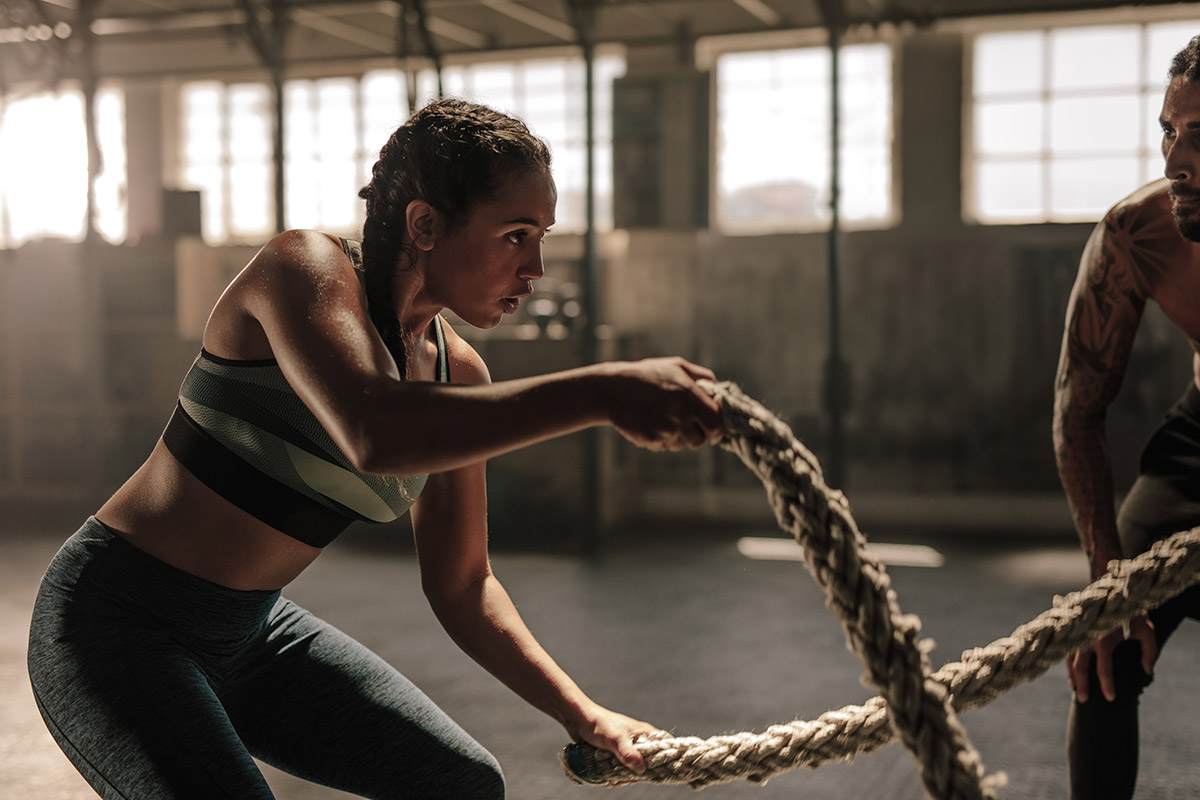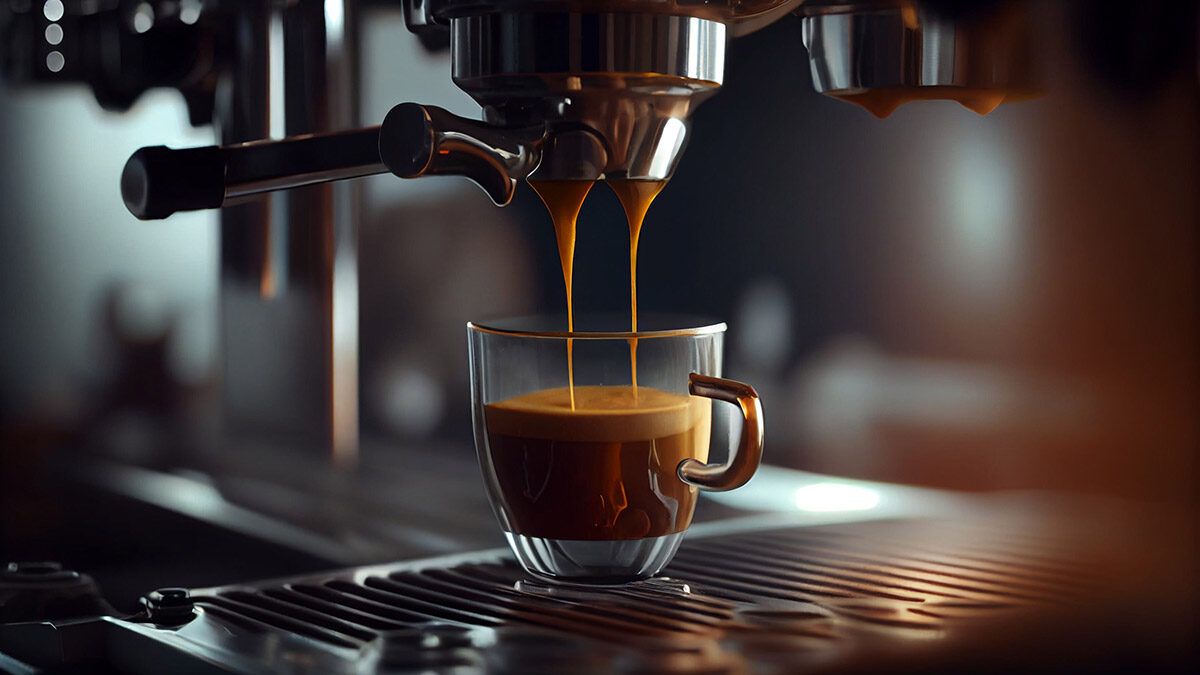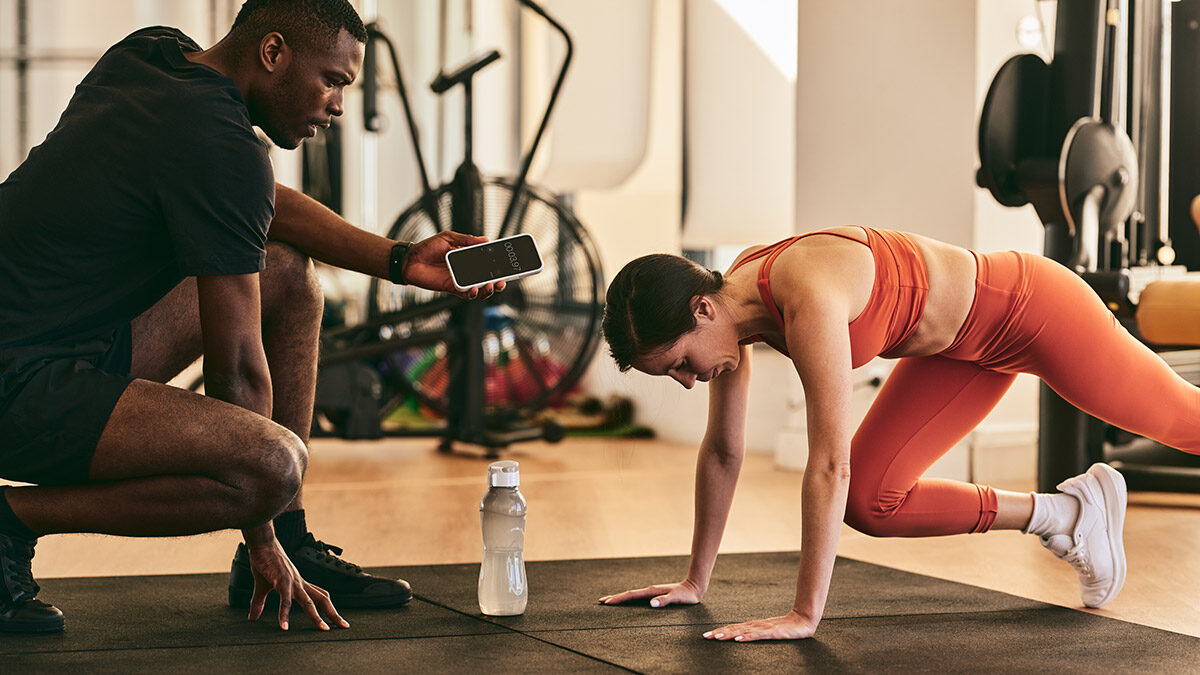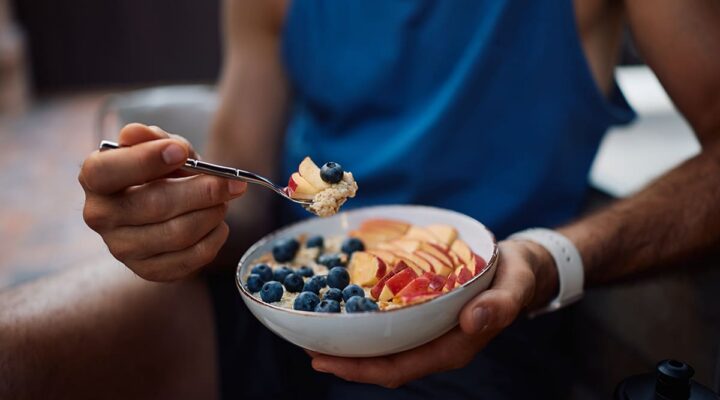Can Coffee Help You To Crush Your Workout?

There’s nothing quite like the feeling of a hot cup of coffee in the morning. It wakes us up, gives us energy, and helps us start our day off right. But could coffee also help us to go harder and faster at the gym?
If you follow fitness influencers on Instagram and TikTok, you’ve probably seen a few of them talk about the fitness benefits of drinking an espresso before hitting the treadmill. Many of them swear by coffee for better performance and endurance. But, like with any trend-led advice on social media, it’s smart to check if there’s any science behind it before we start doing it ourselves.
To help clear up the confusion, we asked Dr Adam Collins, Form’s Head of Nutrition, to explain how coffee affects our body and whether it can really boost our gains at the gym.
How Coffee Affects the Body
Coffee contains caffeine, a natural pick-me-up found in about 60 different plants, coffee beans being one of them. The exact mechanism of how caffeine affects us is disputed in the health world, but Dr Adam says that it’s generally thought to affect the central nervous system.
Ever wonder why you make a beeline for the office coffee machine when that 3pm slump hits? Well, it’s all to do with caffeine’s uptake in the brain. Dr Adam explains: “Caffeine works by blocking the effects of adenosine, a neurotransmitter that makes you feel tired.” So, in essence, caffeine gives you a temporary jolt of energy, making you feel more awake and zoned in.
Plus, caffeine also raises your heart rate and gets your blood pumping, and these effects usually linger for a few hours after you’ve had your java fix.

Does coffee actually improve workout performance?
Studies have actually looked into the whole caffeine and exercise combo, and it turns out sipping coffee before you hit the gym can give your performance a nudge in the right direction, whether you’re into lifting weights or doing cardio.
One study, published in the journal Medicine & Science in Sports & Exercise, found that caffeine supplementation increased strength and power output. The study involved 17 men who were given either caffeine or a placebo before performing a bench press exercise. The researchers found that the men who received caffeine were able to lift more weight and do more repetitions than those who received the placebo.
Another study, published in the journal PLOS One, found that caffeine supplementation improved endurance performance. Researchers gave 15 cyclists either a caffeine or a placebo before performing a cycling time trial. The result? Those sipping on caffeine could pedal for longer and with more oomph than their placebo counterparts.
Dr Adam says that coffee improves workout performance in two key ways. “First, it turbocharges your concentration and hand-eye coordination, making you more focused and sharp. This can really come in handy for athletes who need to make split-second decisions or perform complex moves, like football players,” he explains.
“Second, research has shown that coffee amps up your power output. It means you can keep up the same level of effort for a bit longer. We’re not entirely sure why, but it might be that coffee tricks your brain into feeling less tired, allowing you to push through your workout without hitting that fatigue wall.”
How much caffeine should you drink before a workout?
Now that you know caffeine could be your secret gym weapon, you might be tempted to guzzle gallons of coffee in the weights room, but you don’t need lots of it to get a boost. The right amount depends on how sensitive you are to caffeine.
If you’re new to coffee, Dr Adam recommends starting with 1 to 2 cups (that’s roughly 100-200 mg of caffeine) about 45 minutes before you hit the gym. But, if you’re a caffeine pro, you can go bold with a double espresso (200-400 mg of caffeine) and see how sits. Keep in mind that going overboard on caffeine can lead to headaches, anxiety, and sleepless nights. So, moderation is the name of the game.
Does coffee burn fat?
You’ve probably noticed caffeine popping up in lots of diet products, all claiming it’s the secret to shedding pounds. While it’s true that some studies have shown coffee can temporarily boost your metabolism and help break down fat cells for energy, others have found the opposite, so it shouldn’t be considered a quick fix. When it comes to weight loss, there’s no ‘magic bullet.’
Dr Adam tells us the evidence about coffee’s fat-burning superpowers is inconclusive. “Caffeine can trigger the release of hormones like adrenaline and noradrenaline, which can encourage your body to use stored fat,” he explains. “But the big question is whether this actually leads to a major fat-burning spree when you’re working out.”
Plus, the type of drink you choose makes a difference too. If you load your coffee with sugar, cream, or other calorie-packed add-ons, it can quickly cancel out any fat-burning benefits. And relying solely on caffeine for weight loss isn’t a healthy or sustainable approach either. When it comes to long-term weight management and fat loss, a balanced diet and regular physical activity will always yield the best results.

Can coffee be harmful to gym-goers?
Coffee is pretty safe to drink before a workout when it’s consumed in moderation. However, there are a few things to keep in mind. “If you are pregnant or have cardiovascular issues, it is best to avoid coffee before a workout,” says Dr Adam. Coffee can also interact with certain medications, so it’s worth checking your prescription before you start supping.
As coffee is a diuretic, it can easily dehydrate you too. To maximize the benefits while minimizing the potential drawbacks, be aware of your coffee sensitivity, stay hydrated and avoid drinking it if it doesn’t agree with your stomach. Finally, try not to rely on the office coffee machine as your sole source of energy. While coffee can give us a much-needed boost, a balanced diet and good sleep are both non-negotiable ingredients for overall health and gym performance.


















